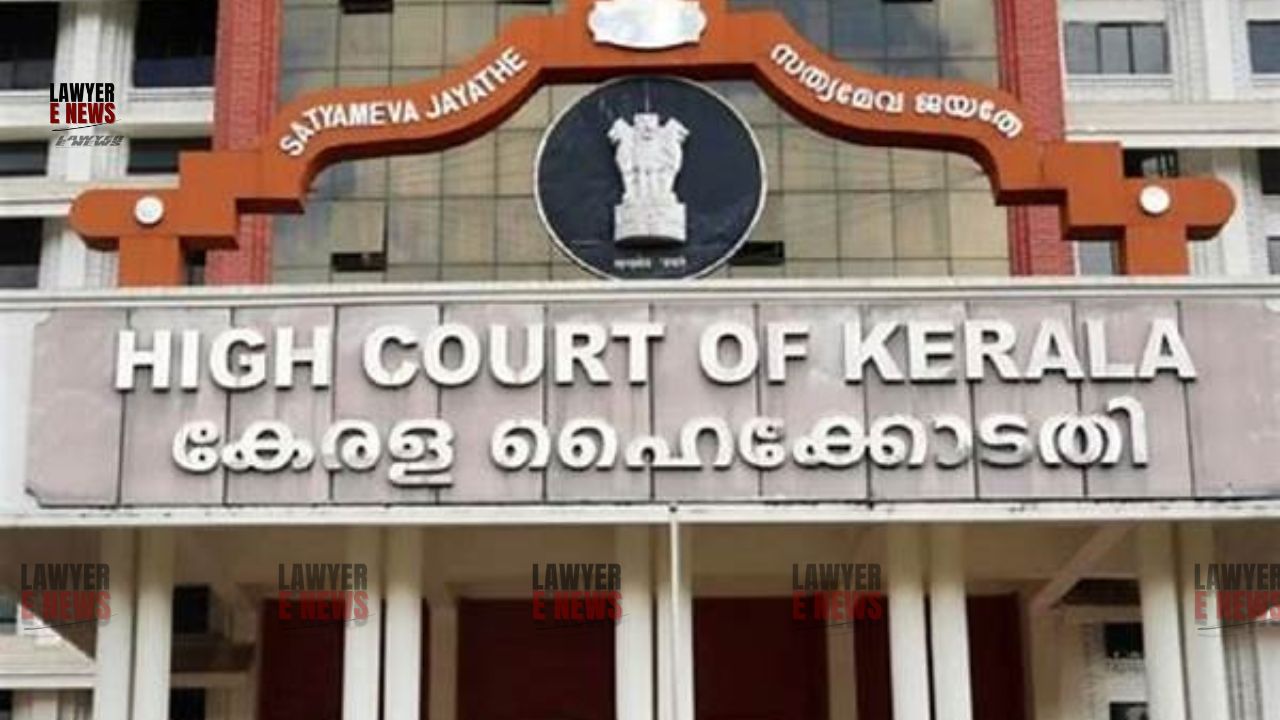-
by Admin
17 December 2025 10:10 AM



Kerala High Court dismissed a petition filed by Shani C., the fourth accused in an abetment of suicide case. The court ruled against quashing the charges, holding that prima facie evidence indicated a plausible role of the petitioner in the alleged instigation leading to the victim’s suicide.
The case arose from the tragic suicide of a young woman who had married after an affair against her in-laws' wishes. Following the marriage on March 31, 2016, the woman reportedly faced hostility from her husband’s family, including Shani, the petitioner. The prosecution argued that Shani and other family members harbored resentment towards the victim due to the circumstances of the marriage and subjected her to sustained cruelty.
On August 5, 2018, the victim, along with her 1.5-year-old child, attended her relative’s funeral alone, as her in-laws refused to accompany her. The prosecution alleges that, despite joining the family shortly before the incident, Shani contributed to the continued harassment, ultimately leading to the victim's suicide between the night of August 6 and the morning of August 7, 2018. The prosecution charged Shani and other family members under Sections 498(A) and 306 read with Section 34 of the Indian Penal Code (IPC) for cruelty and abetment of suicide.
In her petition to quash the charges, Shani argued that she was primarily based in Saudi Arabia, returning to the family home only temporarily and infrequently. Her counsel contended that the allegations of cruelty against her were too generalized and that no specific actions pointed to instigation or intentional abetment of the victim’s suicide. To support this, the defense cited precedents on Section 306 IPC from cases such as Radhika Kapahtia v. State of Kerala and Mohit Singal v. State of Uttarakhand, which emphasize the requirement of an explicit mens rea (intention) and a direct act of instigation.
The court was also presented with references to the 2024 Kerala High Court decision in Sanal T. v. State of Kerala, which reinforced that abetment of suicide requires an overt action with a foreseeable consequence of suicide. The defense maintained that Shani’s alleged acts did not meet the threshold for instigation, as no direct link could be drawn between her actions and the victim’s tragic decision.
Justice A. Badharudeen acknowledged the legal standards for abetment, agreeing that mere dissatisfaction or general dislike does not typically constitute instigation. However, the court found that evidence suggested an escalation of hostile behavior just before the suicide, including incidents that were reported to the victim's husband on the day preceding the tragedy. This evidence indicated that the family’s resentment had intensified to the point of precipitating emotional distress for the victim.
The court noted the Supreme Court’s guidelines from S.S. Chheena v. Vijay Kumar Mahajan, underscoring that abetment must involve a proximate, intentional act likely to drive the victim to suicide. It held that, in this case, the actions of Shani and her family, including their absence at a family funeral and their cold response upon the victim’s return, might plausibly constitute instigation when viewed in context. As a result, the court concluded that the allegations warranted a full trial to determine the extent of Shani’s involvement and whether her actions amounted to an intentional instigation of the victim’s suicide.
The High Court’s ruling in Crl.M.C. No. 1915 of 2023 signifies a strict adherence to the legal requirements of intent and proximity in abetment cases while acknowledging that actions seemingly minor or indirect may still contribute to an emotionally fraught environment, which could legally be interpreted as abetment under Section 306 IPC. Consequently, the court dismissed Shani’s plea for quashment, allowing the matter to proceed to trial for a thorough examination of the facts.
Date of Decision: November 6, 2024
